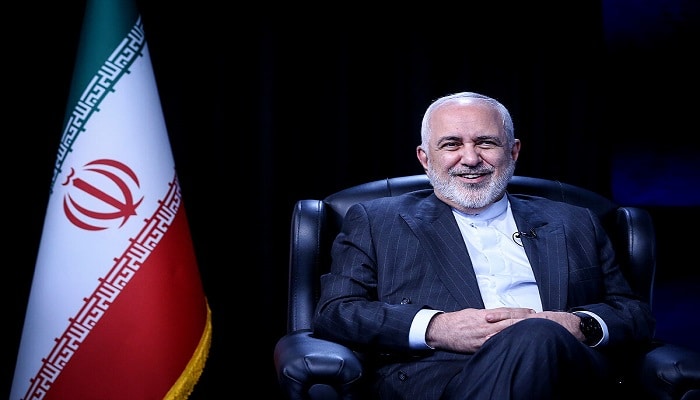PNN – Mohammad Javad Zarif, the Strategic Vice President of Iran, in a note in the “Economist” magazine, announced Iran’s new approach to security and prosperity in West Asia and called for the formation of the “Dialogue Association of Western Muslim Countries” to establish stability in the region.
According to the report of Pakistan News Network, this note was published in English in the Economist on Monday night under the title “Kindness instead of enmity: a new approach from Iran for the security and prosperity of the region”.
The full text of this note is below:
As a student of international relations with decades of experience on the front lines of global diplomacy, I write this not as a representative of the Iranian government but solely in my personal capacity. My experiences have taught me that achieving stability in West Asia, especially in the Persian Gulf region, requires more than crisis management. This requires brave and revolutionary initiatives. Therefore, I propose that the “Muslim West Asia Dialogue Association” (MWADA) be established as a mechanism to achieve this transformation.
The Mawaddat plan invites all influential Muslim countries in West Asia—Bahrain, Egypt, Iran, Iraq, Jordan, Kuwait, Lebanon, Oman, Qatar, Saudi Arabia, (the future government of) Syria, Turkey, the United Arab Emirates, and Yemen—to participate in Participate in comprehensive negotiations. United Nations representatives can also participate in this process. This initiative should be based on the high values of our common religion, Islam, and the principles of sovereignty, territorial integrity, non-interference and collective security. The initials of this title in English (MWADA), which in Arabic – the common language of worship of all of us – is called “mawaddat”, should aim to promote peaceful coexistence and just partnerships.
One of the main priorities of the Muadat plan is to establish immediate, stable and permanent ceasefires in Gaza, Lebanon, Syria and Yemen. The conclusion of a non-aggression pact among member states, along with regional collective surveillance, will help institutionalize stability and protect the region against foreign interference and internal tensions.
Syria after Assad is a big challenge for all of us. The unbridled Israeli aggression that ignores Syrian sovereignty, the foreign interventions that threaten Syria’s territorial integrity, the horrific scenes of violence and atrocities reminiscent of the brutality of ISIS, and the ethnic and religious violence that may lead to a full-scale civil war require attention.
Addressing the humanitarian crisis in Palestine remains critical to regional stability. The Mawaddat Plan must prioritize the right of Palestinians to self-determination and support just solutions that fully respect the aspirations of this people. This does not only include political solutions, but also requires economic opportunities and the recognition of the inalienable rights of Palestinians.
The Mawaddat plan will provide a fertile ground for infrastructure programs; from transportation to energy lines and communication networks. These schemes not only facilitate the movement of goods, but also enable the exchange of energy, information and services. We in West Asia must understand that the concept of independence is closely related to the position of a country in the global added value chain.
Mawaddat plan can lay the groundwork for new regional cooperation in the field of freedom of navigation through the creation of joint maritime security patrols. Our region is the main crossing of strategic waterways in the world, including the Strait of Hormuz, the Suez Canal, and the Strait of Bab al-Mandab. Iran, due to its strategic position and experience in the field of security, has a unique position for constructive participation in securing vital waterways such as the Strait of Hormuz. Other countries can also play a key role in securing the Suez Canal and the Bab al-Mandeb Strait.
Efforts to create a zone free of nuclear weapons and the revival of Iran’s Joint Comprehensive Plan of Action (JCPOA) will be the basic elements of this vision. This approach will not only address the issue of nuclear non-proliferation, but also strengthen the common commitment to peace and stability. The framework of the Mawaddat Plan should prioritize cooperation in cultural exchanges, water resource management, counter-terrorism and media campaigns that promote coexistence.
The role of Iran
Like other countries, Iran will also play an essential role in the framework proposed by Mawaddat. During the past 45 years, my country has shown remarkable resilience and self-sufficiency in the field of security and defense and has been able to not only survive without foreign aid, but even progress against the pressures of extra-regional powers.
Like all nations, Iran has also faced its own challenges and mistakes. The people of Iran, who have endured many hardships with self-sacrifice, are now ready to take brave steps with firm determination and self-confidence. This transition from a threat-oriented perspective to an opportunity-oriented approach is completely in line with the vision that the president Pezishkiyan put forward in the election campaign last summer in Iran.
Mawaddat project calls us to rethink the image of the region, not as a battlefield, but as a center of mawaddat, friendship and empathy, a region where the search for common opportunities and collective welfare are central. It is necessary to engage in meaningful and frank discussions so that we can draw a future based on cooperation, joint and sustainable development, social justice, prosperity and a new hope.

